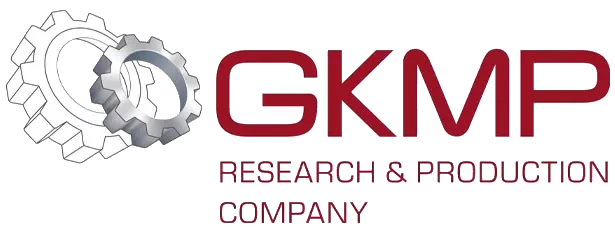As soon as internal market of road constructing and special machinery started to overcome the crisis caused by COVID-19 pandemic in 2020, Russian manufacturers were hit by new challenges related to anti-Russian sanctions and banned export of truckers and special machines. At the same time the sales of new machines showed sustainable growth until now. Despite the complicated geopolitical situation in EEU (The Eurasian Economic Union) we managed to create an integrational structure resistive to external shocks. Currently we work to boost industrial cooperation between the EEU countries. Russian manufacturers claim to have their own nomenclature of special machines similar to those imported from Europe. As for the time frame required to fill the space left by European manufacturers and maturity of our own technologies and skills, those depend directly on available funding sources.
For instance, within the framework of research and development ordered by the Ministry of Trade, the NPO GKMP LLC is already engaged in manufacturing tracked pavers with paving width up to 13 meters. We are also developing a road paver and 140 class motor grader based on “Belarus” tractor. The main idea is to create an up-to-date and high-tech competitive output of road pavers. Therefore, the manufacturer creates a product line of those to be a proper replacement for all importedequivalents.
Unfortunately, despite innovations and continuous joint activity at external markets the measures aimed at supporting national road constructing companies are not that much efficient.
NPO GKMP LLC is the only Russian company engaged in production of tracked and wheeled road pavers, being the lead nationalmanufacturer of patching machines using jet-injection techniques, as well as the manufacturer of integrated road building machines. The company has vast experience in manufacturing and deliveries of products for military industrial sector of the Russian Federation, microelectronics, nuclear electric station, research centers.
In 2016 the NPO GKMP LLC improved its production capacities and recruited highly qualified employees from “Irsmash” thus starting up in short time aserial production of road building machinery, i.e. wheeled and tracked road pavers, patching jet-injection machinesР-310М, AWD motor graders ГС-10-08,integrated road building machines КДМ-316, КДМ-320.
Today road building machines produced by the NPO GKMP LLC operate in 45 regions of Russia, as well as in Belarus, Kirgizia, Moldova, Armenia, Abkhazia, LPR. The company produces and delivers replaceable parts for any product manufactured by the NPO GKMP LLC and “Irmash”. As of this moment road engineershave a wide range of road pavers with different heating systems, simple control mechanisms and required replaceable parts and components. It is to be mentioned that the share of purchased components for pavers produced by the company is negligible: Russian materials and components, including those produced in-the-house, are 78%.
Yearly scope of the pavers market in Russia is over 400-450 pcs, including 350-400 new and 50-100 pcs of previously used ones. 98% of them are imported road pavers. One of curious elements of this project is the forthcoming launch of serial production of tracked and wheeled road pavers (300-500 pcs per year) introduced by NPO GKMP LLC. This achievement would enable to tackle over 90-95% of the demand on Russian market.
CurrentlyNPO GKMP LLC is the only Russian company part of the EEC that produces road pavers. The product line is presented by two tracked models (АСФ-Г-3-01 andАСФ-Г-4-04) and two wheeled ones (АСФ-К-2-07-1 andАСФ-К-4-02-2). Each of them enables to pave the bitumen-concrete mixture from 2.0 – 2.5 mto 4.0 – 9.0 m wide.
A well-developed production of road building will enable to provide the Russian road constructing companies and those in neighboring countries with domestically produced wheeled and tracked pavers, as well as an opportunity to select the best paver considering the customer’s needs.
Moreover, using domestically produced machines cuts the cost of road building services related to purchase of replaceable parts and components but more importantly, ensures import replacement of over 90% of the hardware imported to Russia, namely those of road pavers and replaceable parts required for their repair and maintenance.
The import replacement agenda of the government of the Russian Federation opens before the NPO GKMP LLC a door to great prospective to increase its share at pavers market. However, for successful development of the serial production a strong government support is required, along with the up-to-date capacities.
To expand the machine pool, increase the output and thus enhance the quality of the product significant financing is required. Pavers produces serially shall have a long-term financial basis, mostly provided from the state.
It also requires support from the Ministry of Industry and Trade of the Russian Federation and the government of the Russian Federation at federal, regional and local levels. The lack of financing is the first issue.
Another problem is that there is no systemprocess to update and implement new innovative technologies. The up-to-date development of technologies enables industrial companies to introduce control systems at production level as well as develop technological processes for upgraded hardware.
Nevertheless, it is crucial to select and train the staff to operate new machines, recruit workers and specialists to make them an active part of the process and implement new technologies.
In Russia one mastered the manufacturing of hydra cylinders – the simplest elements of hydro drives and gear rotary pumps. Still however, in order to replace a high-tech hydraulic element by domestic ones, the manufacturers lack their own components, as well as scientific and technical basis.
Therefore,the road building machine market, including that of road pavers – is not only the question of the scale of business but rather of investment in science, research, experimental and engineering activities necessary to develop an equivalent of the purchased equipment. To ensure the proper technical upgrade it is vital to exclude factors hindering domestic production of the hardware. In particular, one shall involve more support from the state, increase cash flows in science and new developments.
Only under these crucial conditions the process of import replacement can be properly adjusted.
